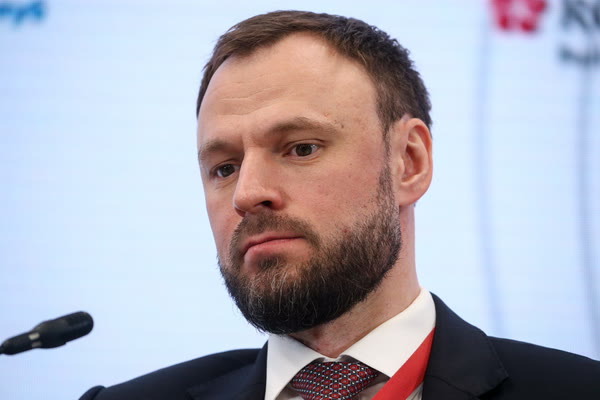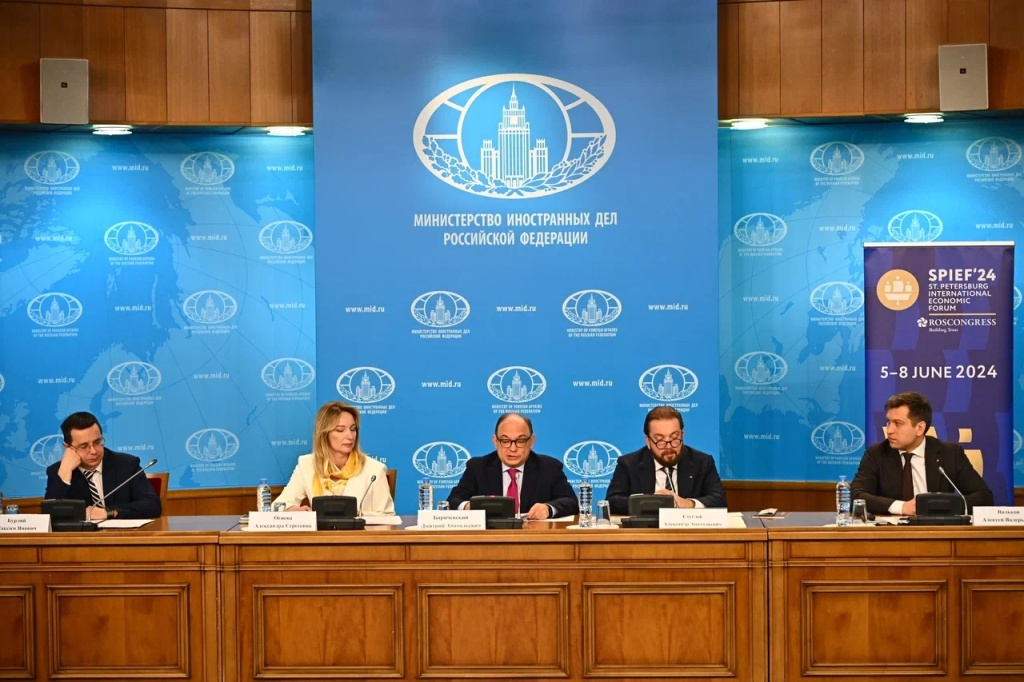
Risks Sanctions Pose to the Global Financial System and International Business
KEY CONCLUSIONS
The wave of sanctions is expanding, and most of them are being initiated by the US and the EU
“We aren’t seeing any end to these trends yet. There is a clear bias towards financial sanctions, as I said, and most of these sanctions are initiated by the United States of America. We are aware of America’s leadership in the international financial system. The use of the dollar as a weapon is a common concept in the expert community,” said Ivan Timofeev, Programme Director of the Valdai Discussion Club; Director of Programmes of the Russian International Affairs Council (RIAC); and Associate Professor at MGIMO University.
“I am afraid that we no longer have an epidemic of sanctions, but a pandemic. [...] Moreover, the European Union has always had a traditional formula, so to speak, that sanctions are a last resort. Alas, this is far from the case now. I can say that sanctions are often the first instrument with which the EU approaches certain problems,” said Vladimir Chizhov, Ambassador Extraordinary and Plenipotentiary and Permanent Representative of the Russian Federation to the European Union.
Banks, the financial sector, and small businesses face the greatest risk
“Banks and private companies are starting to actively try to disengage from any companies that are on the state’s sanctions list as part of a zero-risk policy. [...] As a result, prices are rising in the country, there is a very high level of inflation in the country, and the country is losing the ability to trade with other countries. We aren’t only talking about state-owned companies, or about the state as a whole, but about private business as well,” said Alena Douhan, UN Special Rapporteur on the Negative Impact of Unilateral Coercive Measures on the Enjoyment of Human Rights.
“Sanctions are appearing and, naturally, everyone is afraid of transactions or afraid of breaking some rules, especially when it comes to small businesses or small companies. [...] Sanctions are definitely being used as a weapon in this regard, but considering that sanctions exist, they need to be controlled. Of course, there is a fear of sanctions. So, at some point decisions are made to not take action,” said Tony Ewing, Managing Director of Conquer Risk Capital and Advisory Board Member at RC Investments.
“French companies haven’t left Russia, unlike representatives of some other European countries. But, of course, they have had to adapt, especially in terms of financing. […] This is a big problem for our small [companies], medium-sized businesses, and for export from France. When they see the word Russia, banks move away at the very least and don’t always even bother looking at what the issue is,” said Arnaud Dubien, Director of the Observo Analytical Centre of the Franco-Russian Chamber of Commerce.
PROBLEMS
Sanctions are primarily inflicting damage on the social security system of the population
“In my view, all the sanctions are stupid because they are all hurting people, and their effectiveness is minimal, I would say,” said Vladimir Chizhov, Ambassador Extraordinary and Plenipotentiary and Permanent Representative of the Russian Federation to the European Union.
“In the absence of sufficient resources, the state cannot maintain adequate critical infrastructure, including the healthcare system, water supply, electricity supply, and transportation. People can’t get to the hospital, and hospitals have no medicines. In particular, during my recent cross-country visit to Venezuela, people at hospitals were talking about the inability to take a basic blood test. As a result, the death rate from serious diseases is increasing in countries such as Syria, Iran, Cuba, and Venezuela,” said Alena Douhan, UN Special Rapporteur on the Negative Impact of Unilateral Coercive Measures on the Enjoyment of Human Rights.
“We have even studied cases where humanitarian organizations were subjected to secondary sanctions. And certain American charitable foundations received fines from regulators themselves,” said Ivan Timofeev, Programme Director of the Valdai Discussion Club; Director of Programmes of the Russian International Affairs Council (RIAC); and Associate Professor at MGIMO University.
Business fears the very possibility of sanctions being imposed
“This is simply a consequence of the trust that has developed over the past several decades within the infrastructure of a monocentric global financial system that is centred around the dollar. […] Naturally, this is precisely why secondary sanctions are effective because economic agents suddenly face a risk. They are part of this infrastructure, which is already built into daily business processes, and they can be unexpectedly turned off,” Deputy Minister of Finance of the Russian Federation Vladimir Kolychev said.
“Finally, another trend has been the extremely heightened sensitivity of world business to the subject of sanctions. Whereas 10–20 or more years ago, business somehow distanced itself from this issue and sometimes even brushed it off, today, especially in the financial sector, any large or even small bank is very attentive to it. There is such a concept as excessive submission to sanctions,” said Ivan Timofeev, Programme Director of the Valdai Discussion Club; Director of Programmes of the Russian International Affairs Council (RIAC); and Associate Professor at MGIMO University.
SOLUTIONS
Involvement of international non-governmental organizations
“The current situation requires close attention from non-governmental international organizations and bodies of organizations in the UN system and regional organizations such as the WHO, UNESCO, UNICEF, the International Labour Organization, and a number of others,” said Alena Douhan, UN Special Rapporteur on the Negative Impact of Unilateral Coercive Measures on the Enjoyment of Human Rights.
“We have partnered with other humanitarian organizations on a unilateral basis to gain access to restricted areas. In an effort to continue our work, we negotiated and sought exemptions for humanitarian missions in sanctioned territories,” said Gilles Carbonnier, Vice President of the International Committee of the Red Cross.
Reducing dependence on the dollar and adjusting the international financial system
“The main strategic trend that we – the government together with the Central Bank – are seeing is a gradual shift away from the use of such infrastructure [from the use of dollar reporting]. Naturally, this above all concerns settlements for foreign trade and international capital markets. [...] It is better to switch to national currencies, and the role of the state is more about how to better adjust regulatory documents and provide a boost somewhere,” Deputy Minister of Finance of the Russian Federation Vladimir Kolychev said.
“Earlier this year, a European Commission report was released with a proposal to modernize its [blocking statute]. There is a whole range of measures, such as strengthening national measures of non-recognition and non-compliance, the simplification of procedures to obtain permits, and so on. Nevertheless, while these discussions are taking place in numerous structures of the EU, there is a work plan for the European Commission to implement the legislative initiative. And the corresponding bill is expected to be submitted in the fourth quarter of this year,” said Vladimir Chizhov, Ambassador Extraordinary and Plenipotentiary and Permanent Representative of the Russian Federation to the European Union.
For more, see the ROSCONGRESS.ORG Information and Analytical System.








